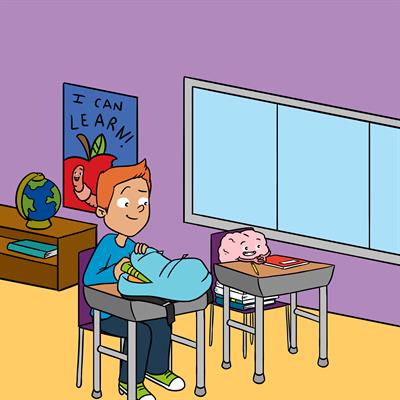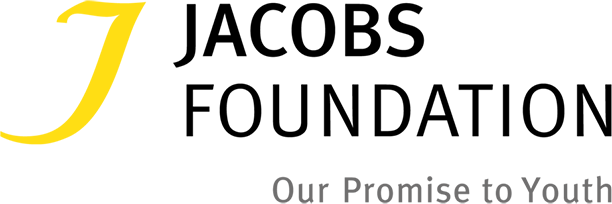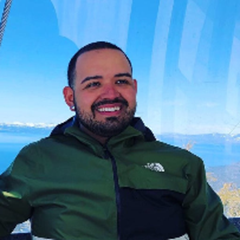
Everything you and your teachers need to know about the learning brain
Collection Editors
Nienke Van Atteveldt, Sabine Peters, Jessica Massonnié, Stephan VogelViews
1,387,519 viewsParticipating Sections
Submission Deadline
Closed
Articles

Neuroscience and Psychology
27/08/2020
It Is Complicated: Learning and Teaching Is Not...
Authors
Breanna C. Lawrence, Burcu Yaman Ntelioglou, Todd Milford
Neuroscience and Psychology
25/08/2020
When Choosing NOT to Listen Helps You Hear and...
Authors
Angela M. Aubuchon, Ryan W. Mccreery
Neuroscience and Psychology
11/08/2020
Measuring Brain Waves in the Classroom
Authors
Nienke van Atteveldt, Tieme W. P. Janssen, Ido Davidesco
Neuroscience and Psychology
05/08/2020
Social Learning and the Brain: How Do We Learn...
Authors
Bianca Westhoff, Iris J. Koele, Ilse H. van de Groep
Neuroscience and Psychology
31/07/2020
How Can We Learn Foreign Language Vocabulary More...
Authors
Brian Mathias, Christian Andrä, Katja M. Mayer, Leona...
Neuroscience and Psychology
30/07/2020
Forty-Two or Two-and-Forty: Learning Maths in...
Authors
Julia Bahnmueller, Hans-Christoph Nuerk, Krzysztof Cipora
Neuroscience and Psychology
10/07/2020
Using Light to Understand How the Brain Works in...
Authors
Mojtaba Soltanlou, Christina Artemenko
Neuroscience and Psychology
03/07/2020
Music and Learning: Does Music Make You Smarter?
Authors
Gabriella Musacchia, Alexander Khalil
Neuroscience and Psychology
25/06/2020
The Adolescent Brain Is Literally Awesome
Authors
Kathryn L. Mills, Jeya Anandakumar
Neuroscience and Psychology
19/06/2020
Mind Games: Technology and the Developing Teenage...
Authors
Lucía Magis-Weinberg, Estelle L. Berger
Neuroscience and Psychology
17/06/2020
A Good Night’s Sleep: Necessary for Young Minds
Authors
M. Elisabeth Koopman-Verhoeff, Jared M. Saletin
Neuroscience and Psychology
16/06/2020
Learning From Mistakes: How Does the Brain Handle...
Authors
Knut Overbye, Rune Bøen, Rene J. Huster, Christian K. Tamnes
Neuroscience and Psychology
11/06/2020
The Magical Art of Magnetic Resonance Imaging to...
Authors
Nora Maria Raschle, Réka Borbás, Carolyn King, Nadine Gaab
Neuroscience and Psychology
05/06/2020
Want to Train Your Brain? Read This Article!
Authors
Dietsje Jolles, Linda Van Leijenhorst
Neuroscience and Psychology
04/06/2020
Is It Worth It? How Your Brain Decides to Make an...
Authors
Anne-Wil Kramer, Hilde M. Huizenga, Lydia Krabbendam, Anna...
Neuroscience and Psychology
14/05/2020
Understanding Your Brain to Help You Learn Better
Authors
Jérémie Blanchette Sarrasin, Lorie-Marlène Brault Foisy...
Neuroscience and Psychology
12/05/2020
How Much Is 2 × 4? Understanding How the Brain...
Authors
Nikolaus Koren, Judith Scheucher, Stephan E. Vogel
Neuroscience and Psychology
08/05/2020
Make Space: The Importance of Spatial Thinking...
Authors
Katie A. Gilligan
Neuroscience and Psychology
05/05/2020
Why Your Mind Is Like a Shark: Testing the Idea...
Authors
Rogier A. Kievit, Ivan L. Simpson-Kent, Delia Fuhrmann
Neuroscience and Psychology
30/04/2020
Your Brain on Puberty
Authors
Marjolein E. A. Barendse, Theresa W. Cheng, Jennifer H...
Neuroscience and Psychology
29/04/2020
From ZZZs to AAAs: Why Sleep Is an Important Part...
Authors
Emma James, Ann-Kathrin Joechner, Beate E. Muehlroth
Neuroscience and Psychology
29/04/2020
How to Use Your Memories to Help Yourself Learn...
Authors
Marlieke van Kesteren, Martijn Meeter
Neuroscience and Psychology
17/04/2020
Cannabis and the Learning Brain
Authors
Lana Vedelago, Jillian Halladay, Catharine Munn, Katholiki...
Neuroscience and Psychology
17/04/2020
Neuro-Myths in the Classroom
Authors
Victoria C. P. Knowland, Michael S. C. ThomasAbout this collection
With funding received of the Jacobs Foundation, the eBook of this Collection has been translated into Spanish, French, Portuguese, German, and Dutch.
Children go to school to learn, and learning takes place in the brain. In the age period of formal schooling, a child’s brain is still undergoing major developmental changes. For these reasons, neuroscience (the study of the brain) and education are closely connected. Learning is possible because the brain is plastic: plasticity refers to the capacity of the brain to reorganize its structure and thereby change function and behavior.
But what exactly changes in the brain when we learn something new? What are optimal conditions for the brain to learn? Why do we also forget things? What developmental changes occur in the brain during childhood and adolescence, and how are these processes different or similar to the neural mechanisms of learning and memory?
Neuro-imaging research, or ‘brain scanning’, has accelerated our current understanding of brain development, learning, memory and other school-related skills such as reading and math but also creativity, metacognition and learning-related emotions and anxieties. But what do these brain scanning techniques actually measure? What kind of questions can we address with neuro-imaging, and what are the limitations?
In this Collection, we will provide an accessible overview of the current state-of-the-art insights into the mechanisms of brain development, learning and memory. The collection will help children understand how their brains learn and develop, and how these processes are shaped by their environment and their own efforts. Moreover, we will discuss why it is important that their teachers and other educational practitioners know about the brain and neuroscience methods. Finally, we will also explain what happens if wrong ideas about the brain circulate, or the correct knowledge is misinterpreted. Neuromyths such as ‘we only use 10 percent of our brain’ are persistent, but important to counter with explaining why they are false, and what is true instead.
In sum, this Collection will provide children with all the relevant knowledge about the brain to understand themselves and their learning processes better, and to equip them to distinguish myths and facts.
Would you like to submit to this collection?
For researchers interested in submitting to this Collection, please consult our author guidelines and check that you have all the essentials included before submitting
Editorial Board
Collection Editors
Science Mentors

Hector Arciniega

Ruggero Bettinardi

Tijana Bojić

Juan Castillo

Naomi Chaytor

Menton Deweese

Aikaterini Dounavi

Gabrielle Edgerton

Yana Fandakova

Carmen Flores Nakandakare

Scott Huettel

Elizabeth Johnson

Christine Kurlawalla-Martinez

Vladimir Litvak

Elizabeth Lorenc

Susana Martinez-Conde

Crystal Miller

Paul Nealen

Jessie Claire Newville

Iryna Omelchenko

Sok King Ong

Tobias Overath

Prachi Patel

Gert-Jan Pepping

Serena Petrocchi

Silvia Riva

Zoltan Sarnyai

Marina Shpaner

Ariel Starr

Carol Thompson

Shubha Tole

Elizabeth Toomarian



